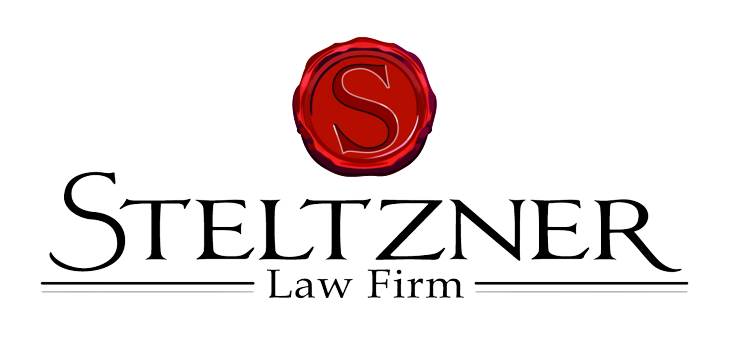Your Complete Guide to Commercial Real Estate in Rock Hill, SC: Answering Your Top Questions
Rock Hill is booming. From the new developments bringing life to the Catawba River to the explosive commercial growth along the I-77 corridor, investors and businesses see the opportunity. But with that opportunity comes complex questions. Commercial real estate (CRE) transactions, leasing, and development are complicated, and the rules in South Carolina are unique.
This guide, written by Rock Hill CRE specialists, answers your most pressing questions. We’ll break down everything you need to know about navigating the York County commercial market.

Table of Contents
How Do Commercial Real Estate Transactions Work in Rock Hill, SC?
This section provides a complete guide to the process of buying or selling commercial property in our local market.
What Are the Key Steps in a South Carolina Commercial Real Estate Purchase?
While every deal is unique, a typical commercial real estate purchase in South Carolina follows these six key steps:
- The Letter of Intent (LOI): This is the first step, outlining the basic terms of the deal, like price, closing date, and the due diligence period. It’s generally non-binding but serves as a roadmap for the official contract. Think of the LOI as a formal handshake. It shows you are serious, but it almost always states that it is ‘non-binding.’ This gives both parties the confidence to spend money on lawyers and inspectors.
- Drafting the Purchase & Sale Agreement (PSA): This is the formal, legally binding contract. This is the most important document in the entire transaction. Every single detail, from what day the lights are turned off to who is responsible for a broken pipe found last minute, must be in this agreement. A local attorney will draft or review this document, which details every obligation, contingency, and timeline for both buyer and seller. A poorly written PSA can lead to expensive disputes.
- Opening Escrow: Once the PSA is signed, the buyer’s “earnest money” deposit is placed with a neutral third party (an escrow agent or attorney’s trust account). This step is about trust. The buyer doesn’t want to give the deposit directly to the seller, and the seller wants to know the money is real. This protects the deposit while the buyer completes their “homework.” The attorney’s trust account acts as a secure ‘holding pen’ that nobody can touch until the deal closes or fails based on the contract terms.
- The Due Diligence Period: This is the buyer’s investigation period to inspect the property, review financials, and verify zoning. (We cover this in-depth in Pillar 2). This is your chance to find the property’s ‘skeletons.’ Buyers should never skip steps here. A ‘good deal’ can become a nightmare if you later discover zoning problems or a bad roof. If the buyer finds issues, they can typically negotiate repairs or walk away and recover their deposit. This is a key part of commercial real estate due diligence.
- Securing Financing: Commercial loans are different from residential ones. Lenders will scrutinize the property’s income (not just the buyer’s credit) and will require documents like a Phase I ESA and a new survey. Lenders are much stricter with commercial loans. They are not just betting on you; they are betting on the property’s ability to make money. A vacant building is a much higher risk than one with three long-term, paying tenants.
- The Closing: On the closing day, all parties sign the final documents, the lender funds the loan, and the seller hands over the keys. In South Carolina, this process is managed by an attorney. The closing day is when all the paperwork comes together. The attorney will present a closing statement (like a final receipt) showing every penny. Once signed, the deed is filed with York County, and the property is officially yours. This is the core of real estate closings
Why is South Carolina an “Attorney Close” State?
South Carolina is an “attorney close” state, which means a licensed South Carolina attorney must oversee every aspect of the real estate closing, from title search to the final signing.
This is a key protection for both buyers and sellers. This SC law is a consumer protection. Unlike in “title company” states (like North Carolina), a lawyer is legally required to be involved in preparing documents and handling the closing. A title company might just process paperwork. An attorney has a legal and ethical duty to represent your specific interests, answer your legal questions, and spot problems in the title or contract.
What does a CRE attorney do in a Rock Hill transaction?
Your attorney is central to the entire process. Their key responsibilities include:
- Title Search & Certification: Pulling all records from the York County courthouse to ensure the property’s title is “clear” and free of liens or ownership disputes. This goes back hundreds of years. The attorney checks the “chain of title” to make sure no old liens, forgotten heirs, or boundary disputes will haunt you.
- Drafting & Reviewing Documents: Handling all legal paperwork, including the PSA, deed, and closing statement. A commercial real estate lawyer must ensure these documents work together and protect you under South Carolina real estate law
- Coordinating Parties: Acting as the central point of contact between the buyer, seller, lender, and surveyors. The attorney is the quarterback of the deal, keeping the realtors, lender, and seller’s team on the same schedule.
- Ensuring Proper Disbursement: Officially receiving and distributing all funds from the transaction, including paying off the seller’s mortgage and recording the new deed. All money flows through the attorney’s trust account. This ensures the seller’s mortgage is paid, the realtor gets their commission, and all taxes are settled before the seller receives their final profit.
An experienced firm like the Steltzner Law Firm manages all these details to protect your investment.
How Do SC and NC Commercial Real Estate Laws Differ?
Many investors in Rock Hill are familiar with the Charlotte market, but the rules are not the same. The three biggest differences are:
- “Attorney Close” vs. Title Company: As mentioned, SC mandates attorney involvement for the entire closing. North Carolina allows title companies to handle closings.
- Due Diligence Terminology: NC has a “due diligence fee” (non-refundable) and a “due diligence period.” This is a huge difference. In NC, you often pay a non-refundable fee just for the option to inspect. In SC, we typically use a “feasibility period” where your earnest money deposit is refundable if you back out for reasons covered in the contract.
- Property Taxes: South Carolina’s property tax laws are very different. While primary residences enjoy a 4% assessment rate, investment and commercial properties are assessed at 6%. This is a critical calculation to make when evaluating a Rock Hill property’s long-term costs. Investors from out of state are often surprised by this. The 6% assessment rate must be part of your financial due diligence process.

Navigating Leases, Development, and Due Diligence in York County
A successful transaction is just one piece of the puzzle. This pillar covers the “homework” (due diligence), the leasing process, and the specific challenges of developing in Rock Hill.
Commercial Leases
What Should You Look for in a Commercial Lease in Rock Hill?
The lease document dictates your costs and responsibilities for years to come. Understanding the “type” of lease is the first and most important step.
What are the common types of commercial leases?
- Triple Net (NNN) Lease: The most common type for retail and industrial properties. The tenant pays a base rent plus their proportional share of the property’s three “nets”: property taxes, property insurance, and common area maintenance (CAM).
- Full-Service Gross Lease: Common in large office buildings. The tenant pays one single, all-inclusive rent payment. The landlord is responsible for paying all taxes, insurance, and maintenance out of that single payment.
- Modified Gross Lease: A hybrid between the two. The tenant pays a base rent that includes some of the operating expenses, but not all. For example, the lease might state the tenant pays for utilities and janitorial, but the landlord covers taxes and insurance.
What key terms must you negotiate in a York County lease?
- Rent & Escalations: How much is the rent, and by how much does it increase each year? Few leases have flat rent. Most increase 2-3% per year. You must calculate the total cost of the lease over its full term, not just the year-one rent.
- Term Length & Renewal Options: How long is the lease, and do you have the right to renew? At what rent? This is your protection. A renewal option gives you, the tenant, the right to stay. Without it, the landlord could rent the space to someone else when your lease ends, forcing you to move your established business.
- Tenant Improvement (TI) Allowance: How much money will the landlord provide for you to build out or customize the space? This is a major negotiating point. A higher TI allowance means less cash you have to pay out-of-pocket.
- Common Area Maintenance (CAM) Charges: In a NNN lease, what exactly is included in CAM? This is the most common area for disputes. Your lease must clearly define what is a CAM charge. Is a full roof replacement a ‘maintenance’ item? Or is it a ‘capital expenditure’ the landlord should pay for? A commercial real estate lawyer in Rock Hill, SC, can help you negotiate a clear definition.
Due Diligence (“The Must-Do Homework”)
What is Included in a Commercial Due Diligence Checklist?
During your “feasibility” or “due diligence” period, you must investigate every aspect of the property. Your checklist should be broken into three parts. This entire investigation is sometimes called commercial due diligence.
What is Physical Due Diligence?
- Building Inspection: A thorough inspection of the building’s core systems: HVAC, roof, foundation, electrical, and plumbing.
- Phase I Environmental Site Assessment (ESA): A historical investigation to ensure past uses (like gas stations or dry cleaners) haven’t contaminated the soil or groundwater. Lenders will require this. Even if the property is a simple office, what was there 50 years ago? A Phase I ESA protects you from being held liable for a contamination you did not create.
- ALTA/NSPS Land Title Survey: A detailed survey that shows all property lines, easements, and physical encroachments. A basic survey just shows the lines. An ALTA survey is much more detailed. It shows all easements (where a utility company can dig), setbacks (how close you can build to the road), and any encroachments (like a neighbor’s fence that is on your new property).
What is Financial Due Diligence?
- Lease Audit: Reviewing all existing tenant leases. You’ll confirm the rent, term, and deposits by having tenants sign “estoppel certificates.” You must read every single lease for the tenants you are inheriting. An ‘estoppel certificate’ is a document where the tenant confirms their own lease terms, which prevents them from claiming something different after you buy.
- Financial Audit: Reviewing the property’s profit & loss (P&L) statements, maintenance records, and service contracts. Never trust the seller’s marketing package alone. You need to see the actual utility bills and tax statements. This is the core of what is financial due diligence.
- Tax Verification: Independently verifying the property tax bills with the York County Assessor’s office, not just taking the seller’s word for it. Many investors seek financial due diligence services from their legal and accounting teams to verify all numbers.
What is Legal & Zoning Due Diligence?
- Title Search: This is part of your attorney’s job, ensuring no one else has a claim to the property.
- Zoning Verification: This is a critical, local question: “Does the City of Rock Hill’s zoning allow my intended use?” This is a classic trap. You buy a building intending to open a small cafe, only to find the zoning forbids food service. You must get a formal Zoning Verification Letter from the city to confirm your business is permitted before you buy. This is a vital part of any commercial real estate due diligence checklist.

Commercial Development (Hyper-Local Focus)
How Do You Navigate Commercial Development in Rock Hill, SC?
Developing a new project in Rock Hill requires deep local expertise and a clear understanding of the city’s specific processes. Your development plan must be perfect.
What is the City of Rock Hill’s “Development Plan Review” Process?
You can’t just start digging. Any new commercial project or major renovation must go through the “Development Plan Review.” This process typically involves a pre-application meeting with city staff, a formal submission of your site plans and architectural drawings, and reviews by multiple city departments (engineering, fire, utilities). The city’s goal is to make sure your development plan is safe. A small error on your site plan can cause months of delays.
Who Do I Need to Talk To for a New Project?
Your project’s approval will likely involve several key local bodies:
- The Rock Hill Planning Commission: Reviews site plans for compliance with the city’s overall development standards.
- The Zoning Board of Appeals (ZBA): You will present to the ZBA if your project requires a “variance” (a minor exception to a zoning rule, like a shorter setback).
- Board of Historic Review: If your property is in one of Rock Hill’s historic districts, this board must approve all exterior changes.
Knowing the people on these boards is a huge benefit. An experienced local team, like the Steltzner Law Firm, understands what the Planning Commission looks for. This experience, built over over 21 years, is invaluable.
What are common zoning and permitting issues in Rock Hill?
- Signage Permits: The city has very specific rules for the size, lighting, and placement of commercial signs.
- Parking Requirements: You must prove your site plan includes the minimum number of parking spaces required for your business type (e.g., a restaurant requires more parking than a warehouse).
- Stormwater Management: All new development must include an approved plan for managing stormwater runoff. Stormwater management is a major issue in York County. You can’t just pave a parking lot and let the rain flood your neighbors. You will be required to build and maintain retention ponds.
Conclusion
The path of a commercial lease, purchase, or development plan in Rock Hill is filled with complex steps. Success demands deep legal, financial, and local knowledge. Understanding the rules of the York County courthouse and the City of Rock Hill’s planning department is non-negotiable for a strong investment.
Many business owners search for ‘real estate lawyers near me’ or ‘commercial real estate lawyers near me’ and hope for a good result. A better approach is to partner with a local, experienced commercial real estate lawyer. The Steltzner Law Firm provides the high-level financial due diligence services and commercial due diligence services investors need. We are not just attorneys; we are part of the Rock Hill community.
If you have questions about an upcoming CRE transaction, need help with [real estate law](https://steltznerlaw.com/real-estate-law/), or are planning a project in Rock Hill, contact our team. The Steltzner Law Firm is here to provide clarity. We’re not just experts in commercial real estate—we’re your neighbors.
